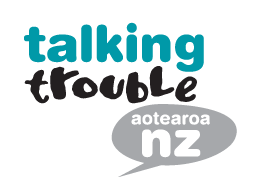Report for Kingslea School: Language and communication skills among young people at a youth justice residence
This report was commissioned by Kingslea School who wanted to find out more about the language and communication skills of their students who attend school at a Youth Justice Residence. We carried out this research in partnership with colleagues from The University of Auckland.
The report describes what young people told us about their experiences of communicating in legal situations, including what they think adults could do to make listening, understanding and talking easier in places like court, police interviews and family group conferences. It also describes their performance on a range of language tasks and assessments. The tasks the young people did with us in this project provide information about how they follow what is being said to them, the words they know and can use, and the way they can explain information.
The findings of our report are in line with other international studies and another NZ study (Lount et al. 2017). Young people told us themselves that language and communication can often be very difficult, especially in legal settings. As a group, they also found the language tasks we did with them much more difficult than other young people of the same age who are not involved in youth justice.
This has implications for young people’s participation in all aspects of their lives – in education, in family/whānau life, for their friendships and wellbeing, and on their participation in justice processes and in interventions designed to help them. Language permeates everything, and we need to make sure young people can have a voice, and understand what others are talking about. The report describes the ideas young people have for improving communication in justice settings, and discusses what needs to be in place so that issues with language are picked up early and appropriate support and interventions are provided. Language difficulties are not always recognised as they can often be masked by many other factors, but they are common and can have a huge impact. We hope this research helps to improve this. We are incredibly grateful to the young people and the adults in their lives who helped with this project.
